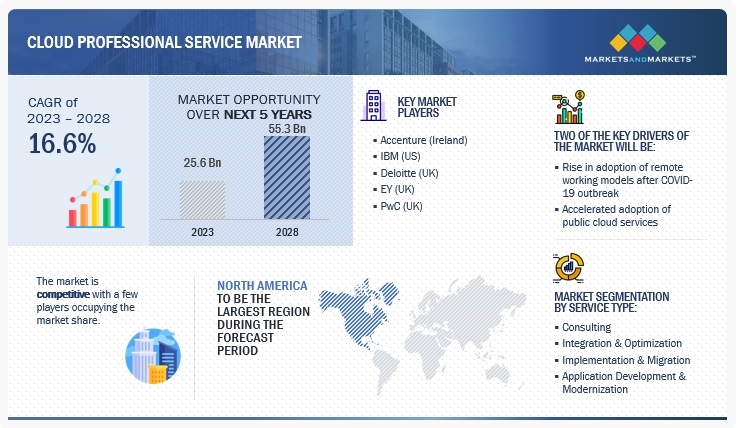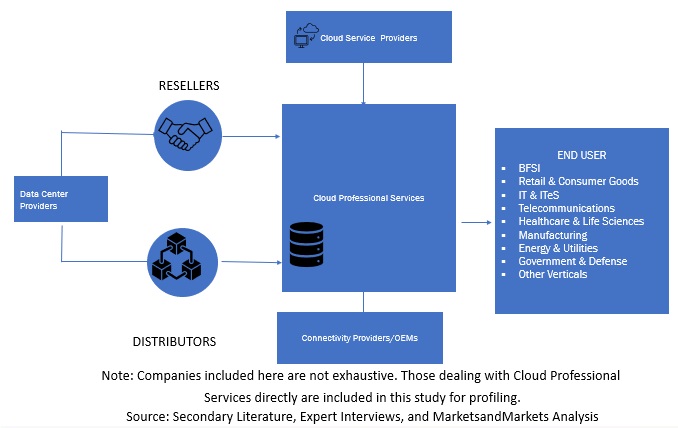In today’s ever-evolving business landscape, cloud technology has become a necessity for organizations to adapt and thrive. As a result, the demand for cloud consultancy professionals has skyrocketed, making it a lucrative career path for many. However, in order to succeed in this field, professionals must possess a diverse set of skills and expertise that align with the market needs. This market research study delves deeper into the importance of these skills and expertise for cloud consultancy professionals to thrive and excel in their careers.
With the rising demand for cloud consultancy professionals, the market has become highly competitive. To stay ahead of the curve, it is crucial for professionals to have a thorough understanding of the latest technologies and trends in the industry. This study aims to shed light on the skills and expertise that are in high demand by organizations seeking cloud consultancy services. By gaining insights into the market needs, professionals can better equip themselves with the necessary skills to succeed in this dynamic field.

The Importance of Skills and Expertise for Cloud Consultancy Professionals: A Market Research Study
What is Cloud Consultancy?
Cloud consultancy is a specialized field that involves providing professional services and guidance to organizations that seek to leverage cloud computing to optimize their operations. Cloud consultants help businesses understand the benefits and risks associated with cloud technologies and develop strategies that align with their goals and objectives. They also provide guidance on the selection of the appropriate cloud technologies and help organizations migrate their data and applications to the cloud.
Why is Cloud Consultancy Important?
Cloud computing has become an essential part of modern business operations. The adoption of cloud technologies has enabled organizations to improve their efficiency, reduce costs, and enhance their agility. However, the complexity of cloud technologies and the challenges associated with migration and management require specialized skills and expertise. Cloud consultancy professionals play a critical role in helping organizations overcome these challenges and achieve their goals.
The Benefits of Cloud Consultancy
The benefits of cloud consultancy are numerous. Here are some of the most significant benefits that organizations can expect to gain from engaging cloud consultancy professionals:
- Expertise: Cloud consultancy professionals have the knowledge and expertise required to help organizations navigate the complexities of cloud technologies.
- Cost Savings: Cloud consultants can help businesses identify cost-saving opportunities by optimizing their cloud infrastructure and operations.
- Efficiency: Cloud consultants can help organizations improve their efficiency by automating processes and streamlining workflows.
- Agility: Cloud consultancy professionals can help businesses enhance their agility by providing flexible and scalable cloud solutions.
- Risk Mitigation: Cloud consultants can help organizations identify and mitigate risks associated with cloud technologies, ensuring that they are secure and compliant.
Cloud Consultancy vs. In-House Expertise
While some organizations may choose to develop their in-house cloud expertise, working with cloud consultancy professionals can provide significant advantages. Here are some of the key differences between in-house cloud expertise and engaging cloud consultancy professionals:
| Cloud Consultancy | In-House Expertise | |
|---|---|---|
| Expertise | Specialized knowledge and expertise in cloud technologies | May lack the depth and breadth of specialized knowledge |
| Cost | May be more cost-effective than developing in-house expertise | May require significant investment in training and resources |
| Flexibility | Provides flexibility to engage expertise as needed | May require a full-time investment in expertise |
| Objectivity | Provides an objective perspective on cloud technologies | May be biased towards the organization’s existing infrastructure and technology stack |
The Future of Cloud Consultancy
The future of cloud consultancy looks promising. With the continued adoption of cloud technologies, the demand for cloud consultancy professionals is expected to grow. The cloud consultancy market is expected to reach $15.6 billion by 2025, with a compound annual growth rate of 22.8%.
The Role of Skills and Expertise in Cloud Consultancy
The success of cloud consultancy professionals depends on their skills and expertise. Here are some of the key skills and expertise required to excel in cloud consultancy:
- Cloud architecture design and implementation
- Cloud migration and management
- Security and compliance
- Automation and DevOps
- Business acumen and communication skills
Conclusion
Cloud consultancy is a critical field that helps businesses optimize their operations and achieve their goals. Engaging cloud consultancy professionals can provide significant advantages and benefits, including specialized knowledge and expertise, cost savings, efficiency, agility, risk mitigation, and objectivity. The future of cloud consultancy looks promising, and the demand for cloud consultancy professionals is expected to grow. Skills and expertise play a vital role in the success of cloud consultancy professionals, and individuals with the necessary skills and knowledge can expect to have rewarding careers in this field.
Frequently Asked Questions
What is the significance of skills and expertise in cloud consultancy?
Cloud consultancy is a rapidly growing industry that requires specialized skills and expertise. In order to provide effective consulting services, consultants must have a deep understanding of the latest cloud technologies and best practices. This includes knowledge of cloud computing, virtualization, security, networking, and more.
Moreover, having strong communication skills is equally important for cloud consultants. They need to be able to effectively communicate with clients, technical teams, and stakeholders to develop and implement solutions that meet business needs. Therefore, having a combination of technical and soft skills is essential for a successful career in cloud consultancy.
What are the benefits of having cloud consultancy skills?
Having cloud consultancy skills can open up many career opportunities for professionals. Cloud computing is quickly becoming the go-to solution for businesses looking to optimize their IT infrastructure and improve efficiency. This means that there is a high demand for skilled professionals who can provide cloud consulting services.
In addition to career opportunities, having cloud consultancy skills can also lead to higher salaries. Employers are willing to pay top dollar for individuals who have the expertise to help them move their business to the cloud. Furthermore, having these skills can also lead to job security, as cloud computing is a growing field that is expected to continue to expand in the coming years.
What are the different types of cloud consultancy skills?
There are various types of cloud consultancy skills that professionals need to possess. These include technical skills such as knowledge of cloud platforms, virtualization, security, and networking. Additionally, consultants need to have project management skills to help businesses implement cloud solutions effectively.
Soft skills are also important for cloud consultants. They need to have excellent communication skills to effectively understand and communicate business requirements. Furthermore, they need to be able to collaborate with technical teams and stakeholders to ensure that cloud solutions meet business needs.
How can professionals acquire cloud consultancy skills?
Professionals can acquire cloud consultancy skills through a variety of methods. One way is to attend training and certification programs offered by cloud technology vendors such as Amazon Web Services, Microsoft Azure, and Google Cloud Platform. These programs provide hands-on experience and knowledge of cloud platforms.
Another way to acquire cloud consultancy skills is to gain experience through working on cloud projects. This can be done by working on internal cloud projects within a company, or by freelancing and working on projects for clients. This hands-on experience can help professionals gain practical knowledge and skills in cloud consultancy.
What is the future of cloud consultancy?
The future of cloud consultancy looks bright. Cloud computing is expected to continue to grow, and businesses are increasingly adopting cloud solutions to improve their operations. This means that there will be a high demand for skilled cloud consultants who can provide guidance and solutions.
Furthermore, the COVID-19 pandemic has accelerated the adoption of cloud technologies, as businesses needed to quickly transition to remote work. This has created new opportunities for cloud consultants to help businesses optimize their cloud infrastructure and enable remote work. As a result, the future of cloud consultancy is expected to be a promising one.

In conclusion, the market research study highlights the significance of skills and expertise for cloud consultancy professionals. The results indicate that clients prioritize professionals with relevant certifications and experience in cloud technologies. The study emphasizes the importance of keeping up with the latest technological advancements and continuously developing skills to meet client demands.
As the demand for cloud consultancy services continues to grow, it is clear that professionals with a deep understanding of the cloud ecosystem will be highly valued. To succeed in this industry, it is essential to invest in your skills and expertise. By continuously learning and keeping up with the latest trends, you can position yourself as a valuable asset to your clients.
Overall, the study underscores the vital role that skills and expertise play in the success of cloud consultancy professionals. By focusing on developing and honing these skills, professionals can not only meet but exceed client expectations and contribute to the growth and evolution of the industry.
